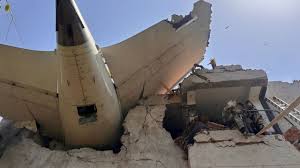
Introduction
India, a nation of immense diversity and a rapidly growing economy, stands at the crossroads of tradition and modernity. With a rich history that spans thousands of years, this South Asian country boasts a tapestry of cultures, languages, and religions. Understanding India is crucial not only for appreciating its heritage but also for recognising its role in global affairs today, particularly in the realms of trade, technology, and climate change.
Cultural Diversity
India is known for its cultural richness, with over 1.3 billion people belonging to various ethnic groups and speaking more than 1,600 languages. Major religions, including Hinduism, Islam, Christianity, Sikhism, Buddhism, and Jainism, coexist, contributing to a vibrant mosaic of customs and traditions celebrated across the country. Festivals such as Diwali, Eid, Christmas, and Pongal are widely observed and reflect the communal harmony that exists amid diversity.
Economic Growth
In recent years, India has emerged as one of the world’s largest economies, with a GDP growth rate projected at 6.5% for 2023, according to the International Monetary Fund (IMF). The government’s initiatives, such as ‘Make in India’ and ‘Digital India,’ have spurred industrial development and tech innovation, attracting foreign investment and boosting employment opportunities. Additionally, India’s large workforce plays a pivotal role in sectors like technology, textiles, agriculture, and pharmaceuticals, positioning the country as a vital player in global supply chains.
Global Significance
As India continues to grow economically, its geopolitical significance has increased markedly. The nation plays a crucial role in various international forums, including the United Nations, G20, and BRICS. India’s strategic partnerships, especially in defence and climate initiatives, highlight its commitment to addressing global challenges. For instance, as part of its commitment to the Paris Agreement, India aims to achieve net-zero emissions by 2070, showcasing its role in global environmental sustainability efforts.
Conclusion
In conclusion, India stands out as a nation teeming with diversity, rich cultural heritage, and economic potential. As it navigates the complexities of global dynamics, understanding India’s unique blend of tradition and innovation will be essential for both scholars and global citizens alike. The forecasts suggest that India will continue to play an increasingly pivotal role on the world stage, driving economic trends, cultural exchanges, and collaborative efforts to tackle global issues. Engaging with India’s multifaceted narrative will thus be significant for anyone keen on understanding the future trajectories of our interconnected world.
You may also like

Discovering the Beauty and Culture of Norway

The Importance of Pubs in British Society and Their Resurgence

Exploring the Unique Heritage and Current Affairs of Eswatini
SEARCH
LAST NEWS
- Remembering Wendy Richard: The Promise to Co-Star Natalie Cassidy
- How Did Anglian Water Achieve an ‘Essentials’ Rating for Mental Health Accessibility?
- Shai Hope Leads West Indies in T20 World Cup Clash Against South Africa
- What We Know About Weston McKennie: Future at Juventus and Past at Leeds
- What We Know About the Upcoming Live Nation Antitrust Trial